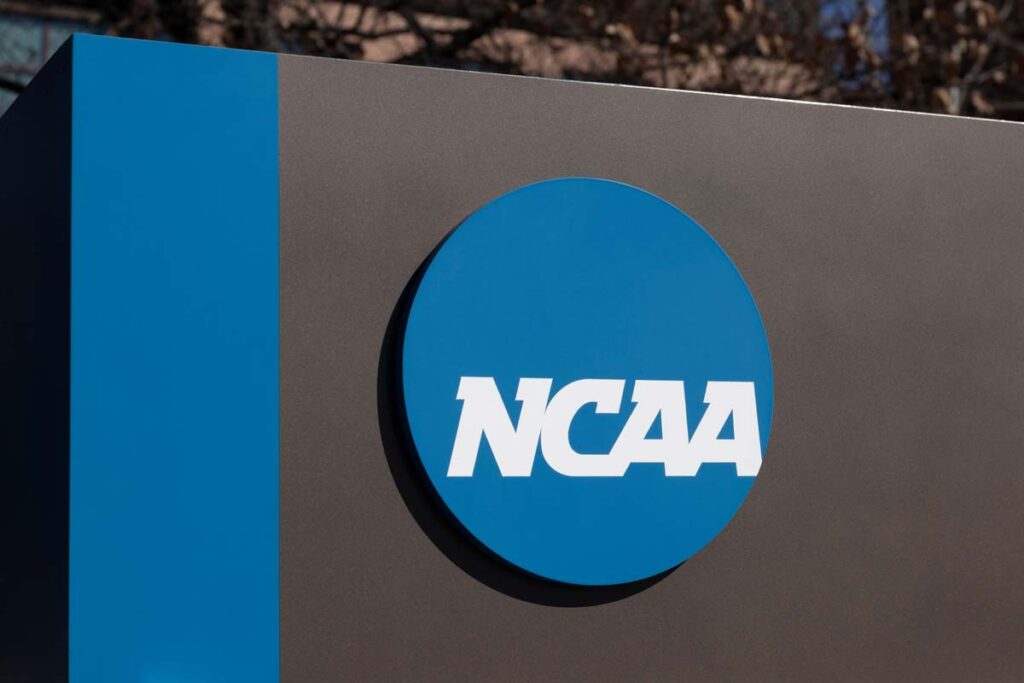
NCAA transfer eligibility lawsuit overview:
- Who: The attorneys general for Ohio, Colorado, Illinois, New York, North Carolina, Tennessee and West Virginia filed a lawsuit against the National Collegiate Athletic Association (NCAA) challenging the group’s transfer eligibility rules.
- Why: The NCAA imposes a one-year eligibility delay for some athletes that the states are challenging as an unfair imposition on those athlete’s earning ability.
- Where: The NCAA transfer eligibility lawsuit was filed in federal court in West Virginia.
The attorneys general for Ohio, Colorado, Illinois, New York, North Carolina, Tennessee and West Virginia filed a lawsuit in West Virginia federal court against the National Collegiate Athletic Association (NCAA) challenging the group’s transfer eligibility rules.
Those NCAA rules deny eligibility to certain athletes for a full year and impeded their earning power, the lawsuit claims. The delay comes into play when an athlete transfers multiple times. Ohio is the lead plaintiff while West Virginia Attorney General Patrick Morrisey is serving as local counsel for the states.
Morrisey specifically cited the case of RaeQuan Battle, who was recently denied an NCAA waiver to be immediately eligible to play basketball at West Virginia University because he has transferred multiple times, most recently after his coach at Montana State left the school.
The states argue that the transfer rule is a violation of Section 1 of the Sherman Antitrust Act.
Southern Illinois’ Jarrett Hensley and SIU’s Noah Fenske were also specifically cited in the NCAA lawsuit.
Morrisey’s Office said that it filed a separate lawsuit asking for a temporary restraining order against the NCAA enforcing the rule.
California lawsuit challenges NCAA’s restrictions on athlete earnings
A separate antitrust lawsuit was filed in federal court in California challenging the NCAA restricting athletes from making money beyond scholarships and fringe benefits from schools while those schools, coaches and administrators are compensated according to the market.
The lawsuit cited reports that Big Ten Commissioner Jim Delany made $10.3 million in his final year and former Texas A&M football coach Jimbo Fisher received a $76 million buyout when he was fired by the school.
The National Collegiate Athletic Association (NCAA) and the Power Five conferences are facing a class action lawsuit asking them to share the television contract revenue they receive.
Do you believe athletes should be able to transfer multiple times and retain immediate NCAA eligibility? Let us know in the comments.
The plaintiffs are represented by their attorneys general with West Virginia Attorney General Patrick Morrisey serving as local counsel for the states.
The NCAA transfer eligibility lawsuit is State of Ohio, et al. v. National Collegiate Athletic Association, Case No. unknown, in the U.S. District Court for the Northern District of West Virginia Clarksburg Division.
Don’t Miss Out!
Check out our list of Class Action Lawsuits and Class Action Settlements you may qualify to join!
Read About More Class Action Lawsuits & Class Action Settlements:














